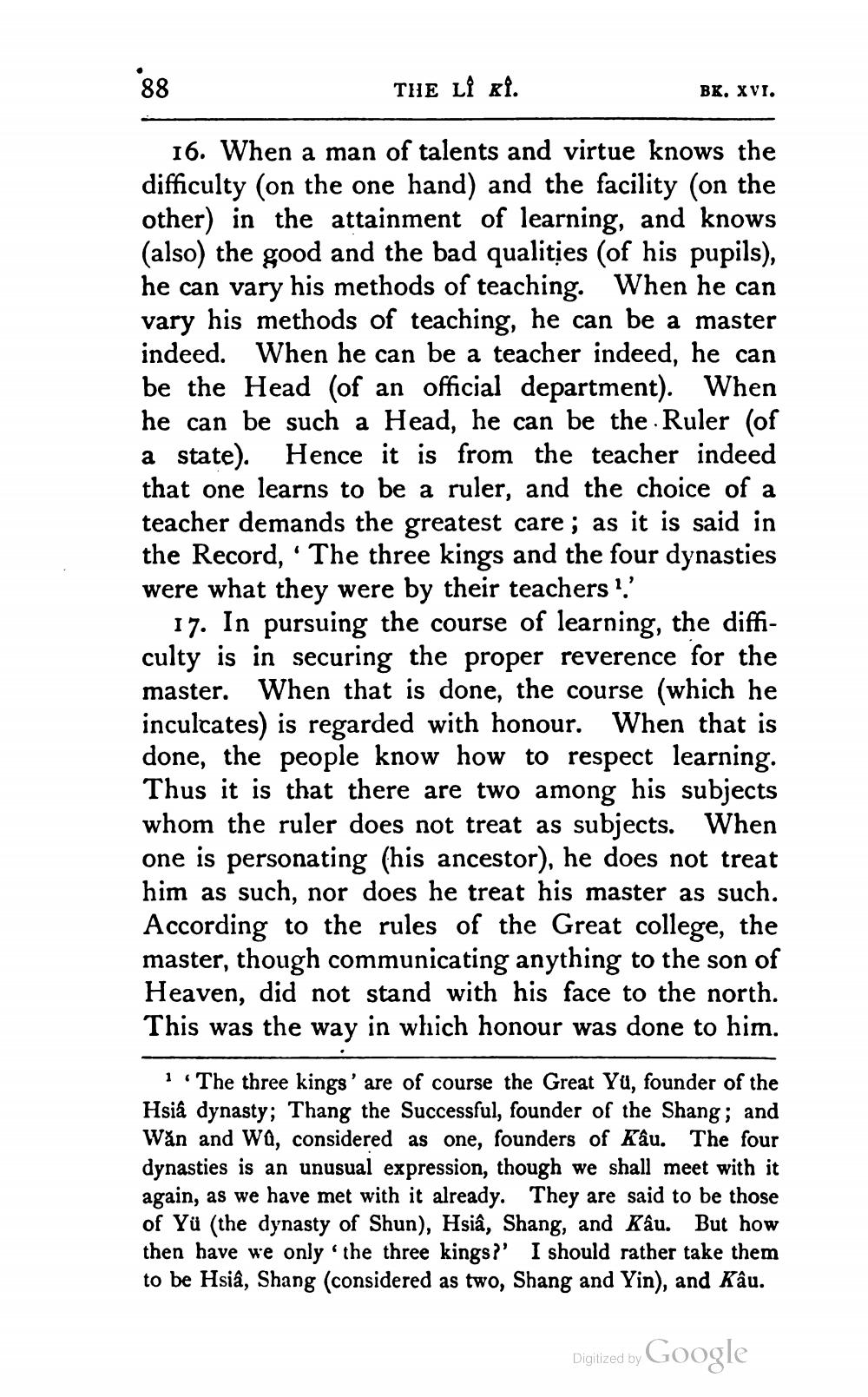________________
88
THE LI Kİ.
16. When a man of talents and virtue knows the difficulty (on the one hand) and the facility (on the other) in the attainment of learning, and knows (also) the good and the bad qualities (of his pupils), he can vary his methods of teaching. When he can vary his methods of teaching, he can be a master indeed. When he can be a teacher indeed, he can be the Head (of an official department). When he can be such a Head, he can be the Ruler (of a state). Hence it is from the teacher indeed that one learns to be a ruler, and the choice of a teacher demands the greatest care; as it is said in the Record, The three kings and the four dynasties were what they were by their teachers'.'
"
17. In pursuing the course of learning, the difficulty is in securing the proper reverence for the master. When that is done, the course (which he inculcates) is regarded with honour. When that is done, the people know how to respect learning. Thus it is that there are two among his subjects whom the ruler does not treat as subjects. When one is personating (his ancestor), he does not treat him as such, nor does he treat his master as such. According to the rules of the Great college, the master, though communicating anything to the son of Heaven, did not stand with his face to the north. This was the way in which honour was done to him.
BK. XVI.
The three kings' are of course the Great Yü, founder of the Hsiâ dynasty; Thang the Successful, founder of the Shang; and Wăn and Wû, considered as one, founders of Kâu. The four dynasties is an unusual expression, though we shall meet with it again, as we have met with it already. They are said to be those of Yü (the dynasty of Shun), Hsiâ, Shang, and Kâu. But how then have we only the three kings?' I should rather take them to be Hsiâ, Shang (considered as two, Shang and Yin), and Kâu.
(
Digitized by
Google




